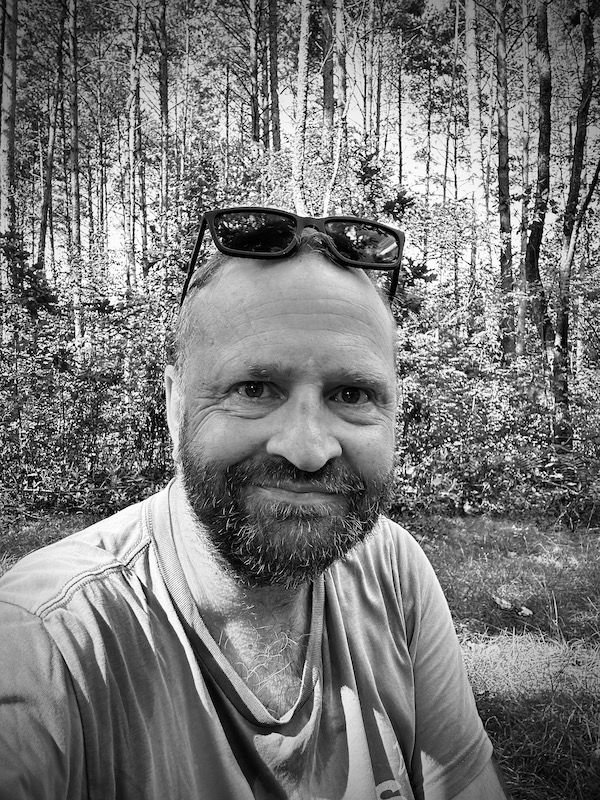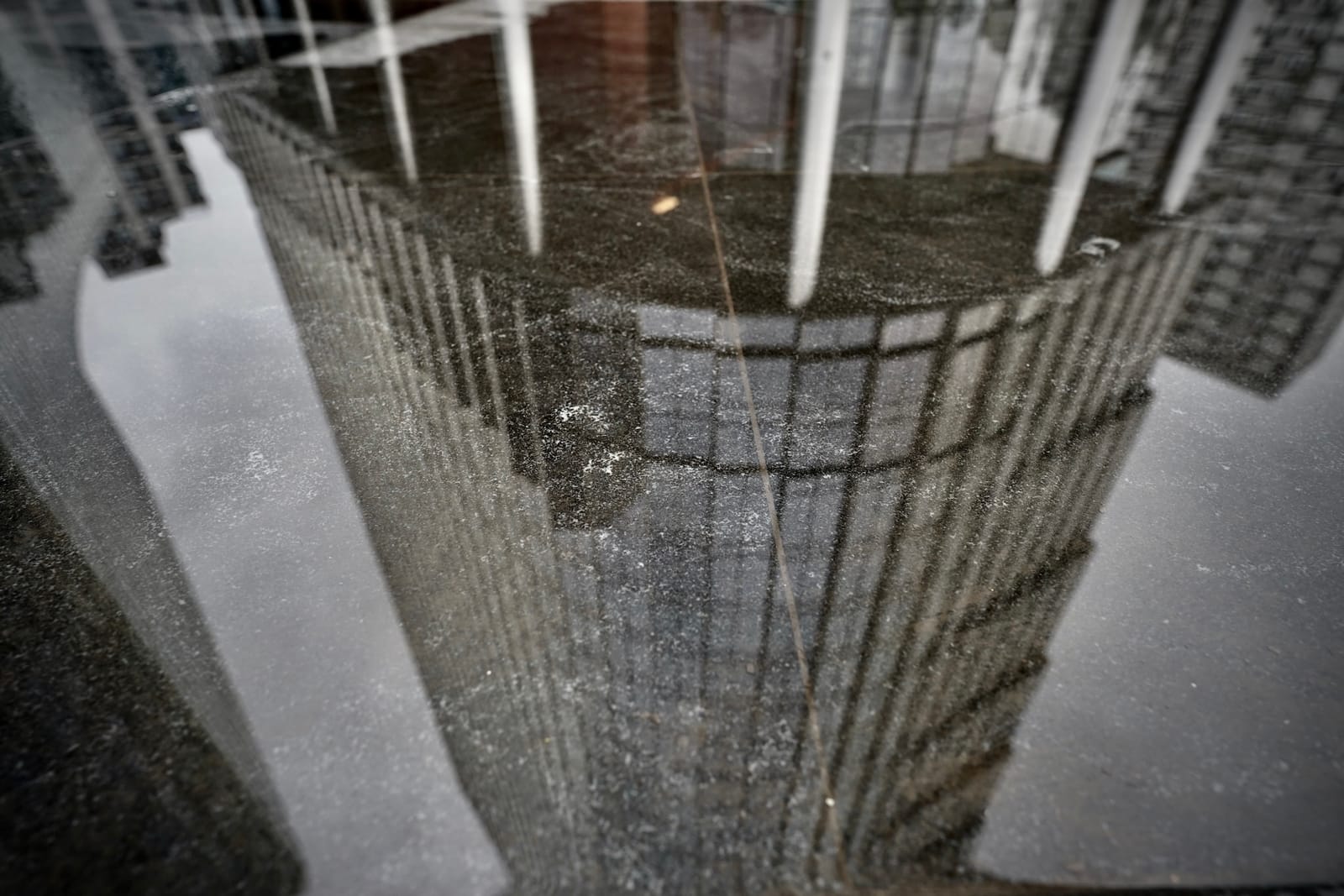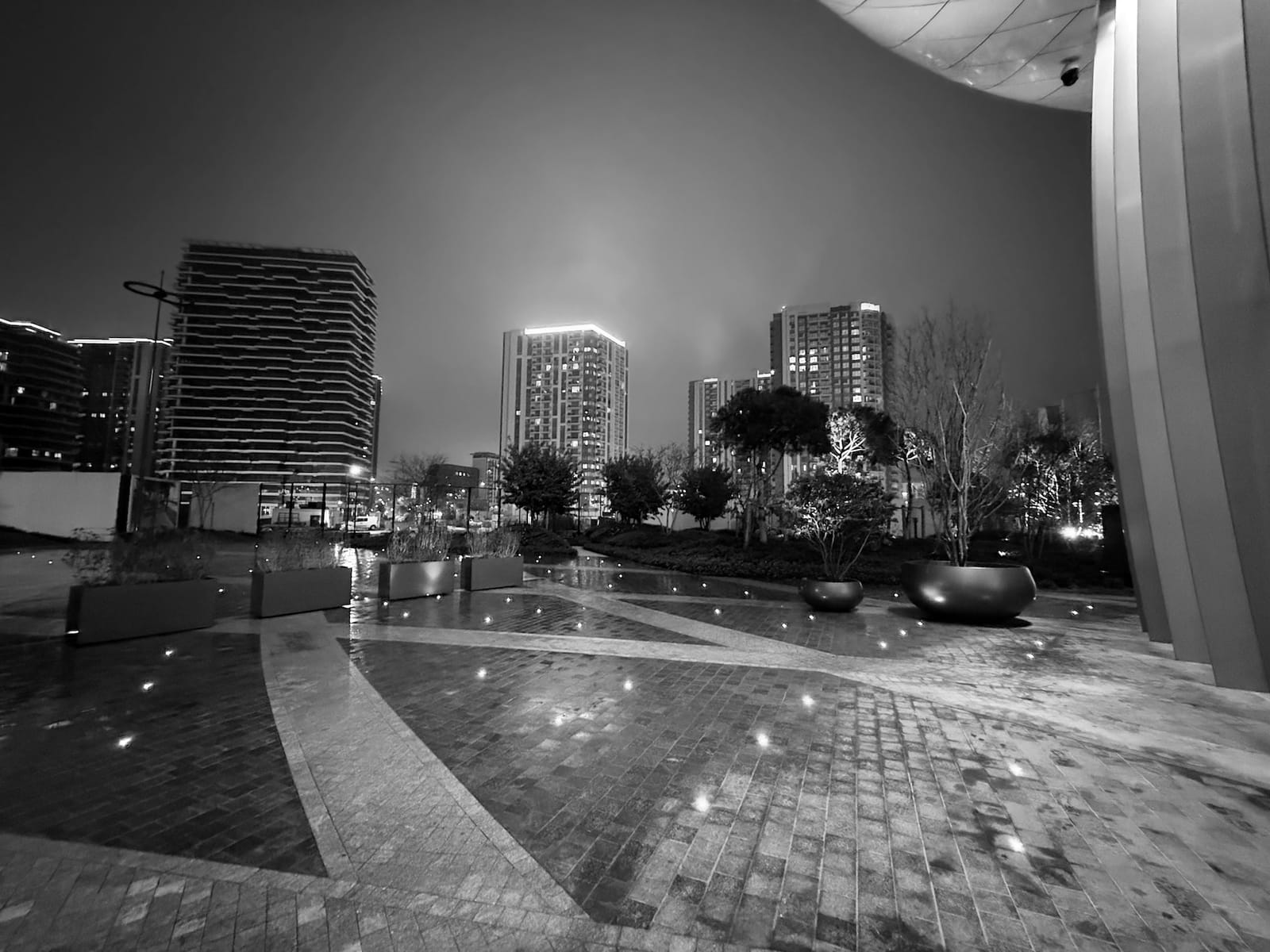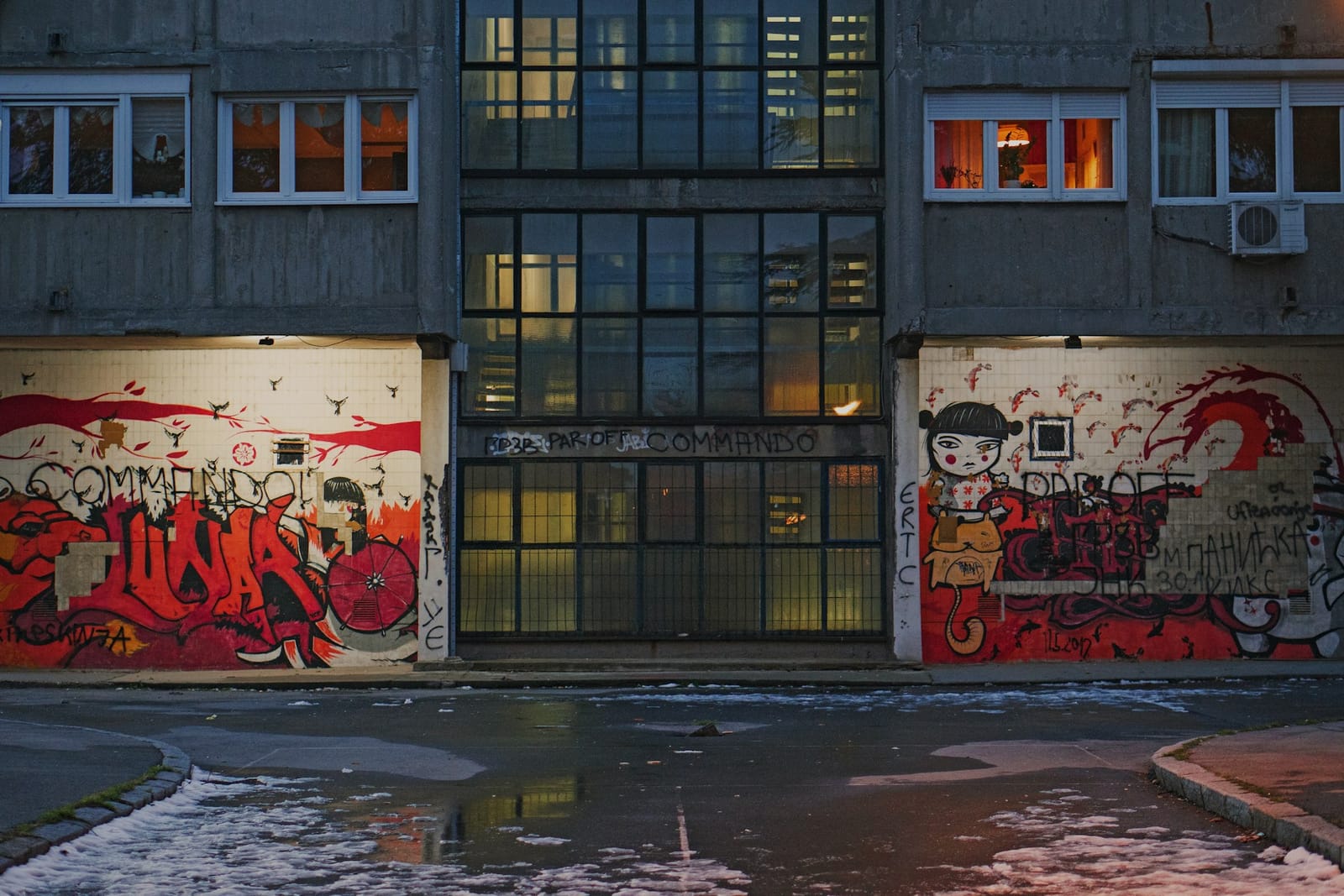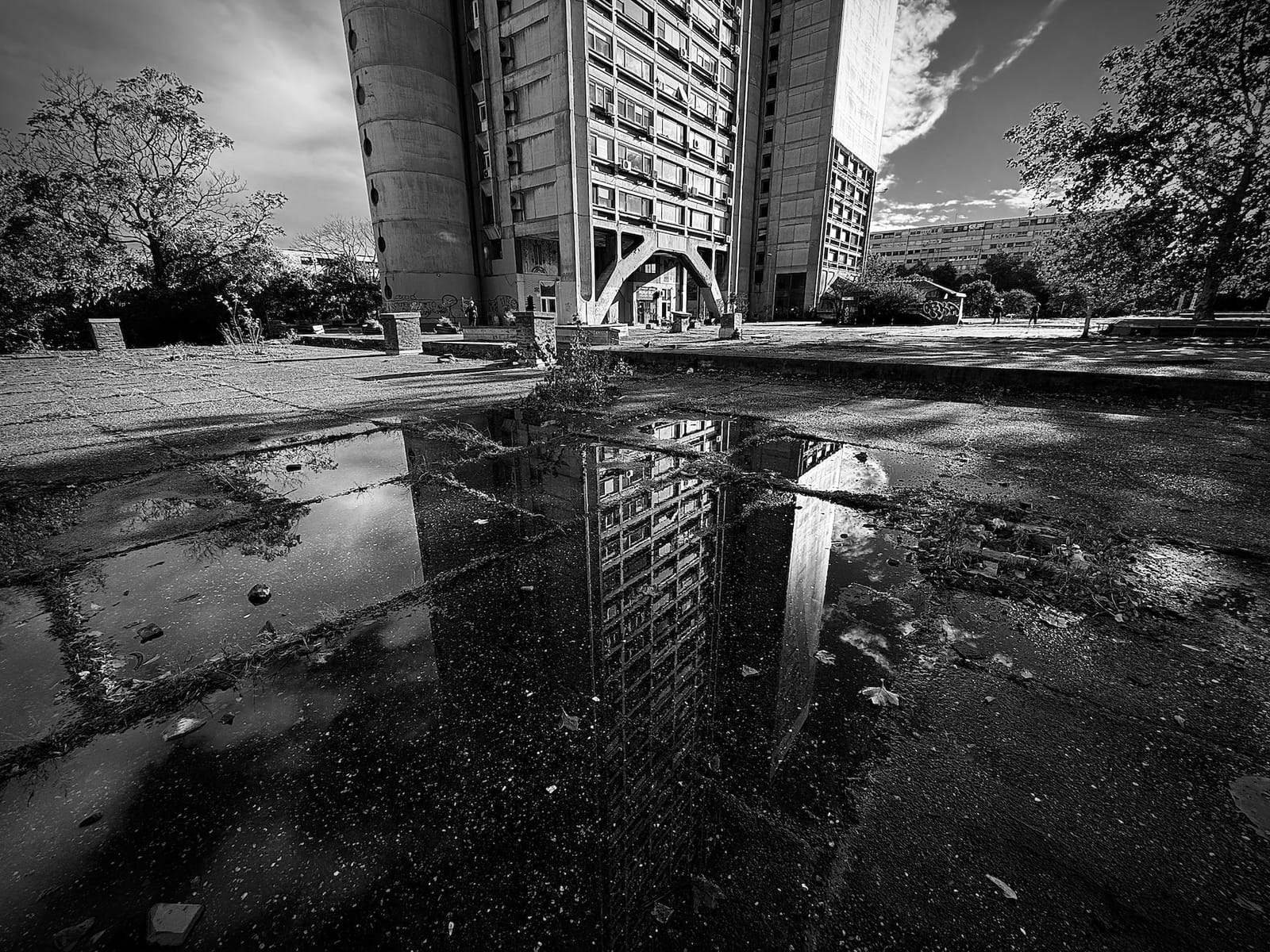Six weeks into my Warsaw residency, I find myself caught between two competing narratives about what it means to inhabit a place. The first - let's call it the "Grand Narrative of Cultural Integration" - (I mean, why not?) insists that to truly live somewhere, one must learn its language, decode its systems, master its cultural grammar. This is the story I told myself before coming here: I would enrol in Polish classes, diligently conjugate verbs, accumulate vocabulary like currency, and through this disciplined acquisition, earn my place in the city.
The second narrative has no words at all. It emerges during my aimless afternoon walks through Sadyba's ancient streets, or when I follow the Vistula's meandering path without destination. In these moments, Warsaw and I exist in a state of mutual becoming that requires no translation, no proof of competency, no measurement of progress.
However, philosophy warns us about the tyranny of grand narratives - those totalising stories that promise coherent meaning and inevitable progress. The language-learning industrial complex is perhaps one of the most pervasive contemporary examples. It is certainly front of mind for me at the moment. This complex sells us the seductive fiction that cultural belonging can be systematically acquired, that intimacy with place follows a measurable trajectory from beginner to intermediate to advanced. But what happens when lived experience refuses to conform to this neat progression?
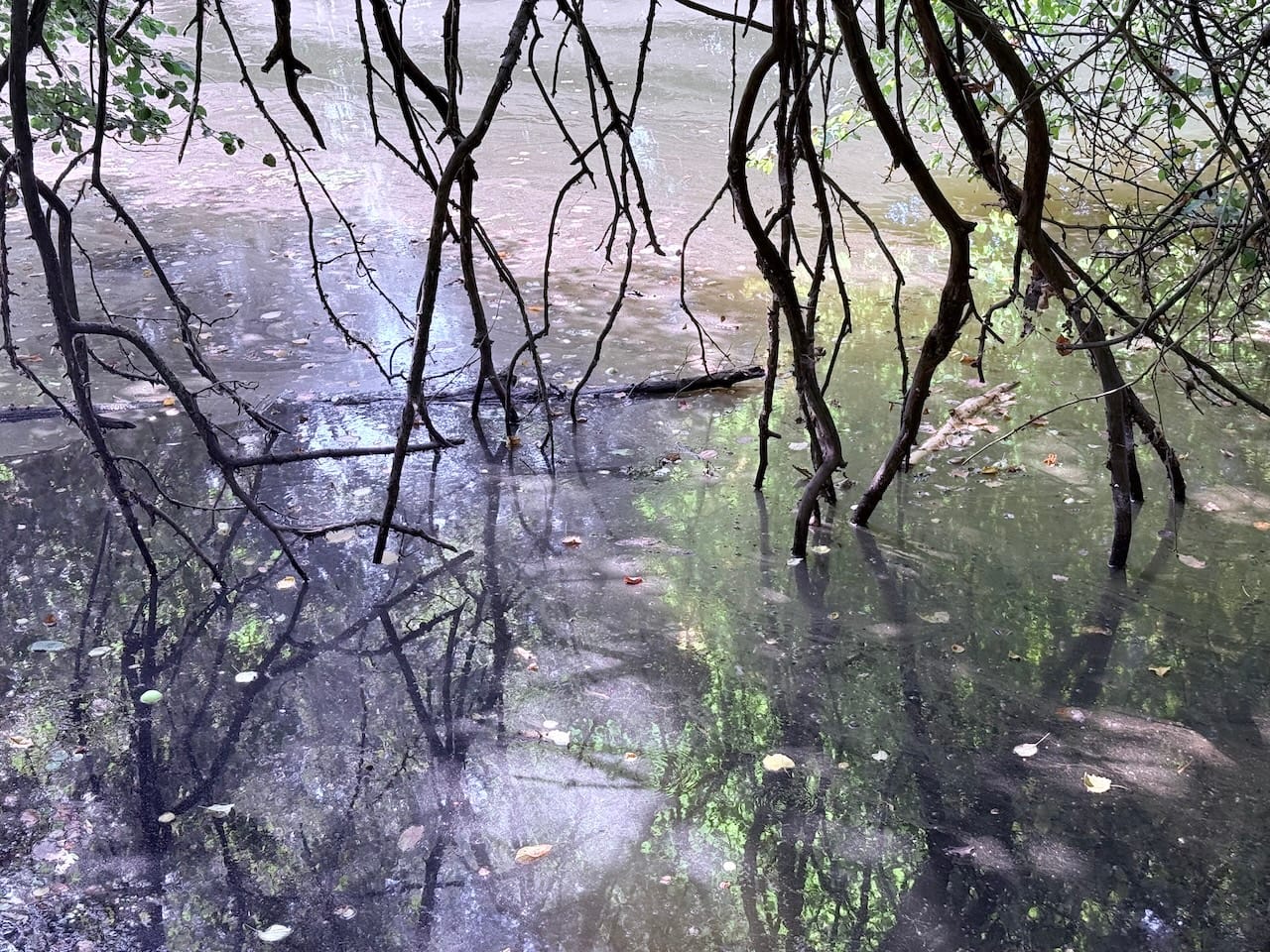
The Discipline of Belonging
My Polish classroom sits on the second floor of a converted apartment building near the Palace of Culture. Slap bang in the centre of Warsaw. Through the windows, I can see the city living in real time - trams threading between the communist-era housing blocks, people navigating pavements with the fluid confidence of long familiarity. Yet inside, we parse grammar tables and practice dialogues about drinking milk and eating apples, as if Warsaw could be reduced to a series of linguistic transactions.
French historian and philosopher Michel Foucault understood how seemingly benevolent institutions create their own forms of surveillance and control. The language school, with its levels and assessments, its incremental units and homework assignments, becomes a site where I learn to monitor my own progress - or lack thereof. I internalise the gaze of evaluation, measuring every conversation against standardised benchmarks, transforming spontaneous encounters into opportunities for linguistic performance.
My old-dude memory, it turns out, is resistant to this disciplinary framework. Verb endings dissolve before I can deploy them. The seven cases of Polish nouns feel like an elaborate architectural system I'm perpetually locked out of. But rather than questioning the system itself, I question my capacity - a perfect example of how institutional power operates, making us complicit in our own subjugation.
The pressure mounts daily. Each failed conjugation becomes evidence of inadequacy. Each conversation where I resort to English feels like a small betrayal of my stated intentions. I find myself avoiding interactions that might expose my linguistic limitations, creating a bizarre situation where the pursuit of communication skills actively reduces my willingness to communicate.
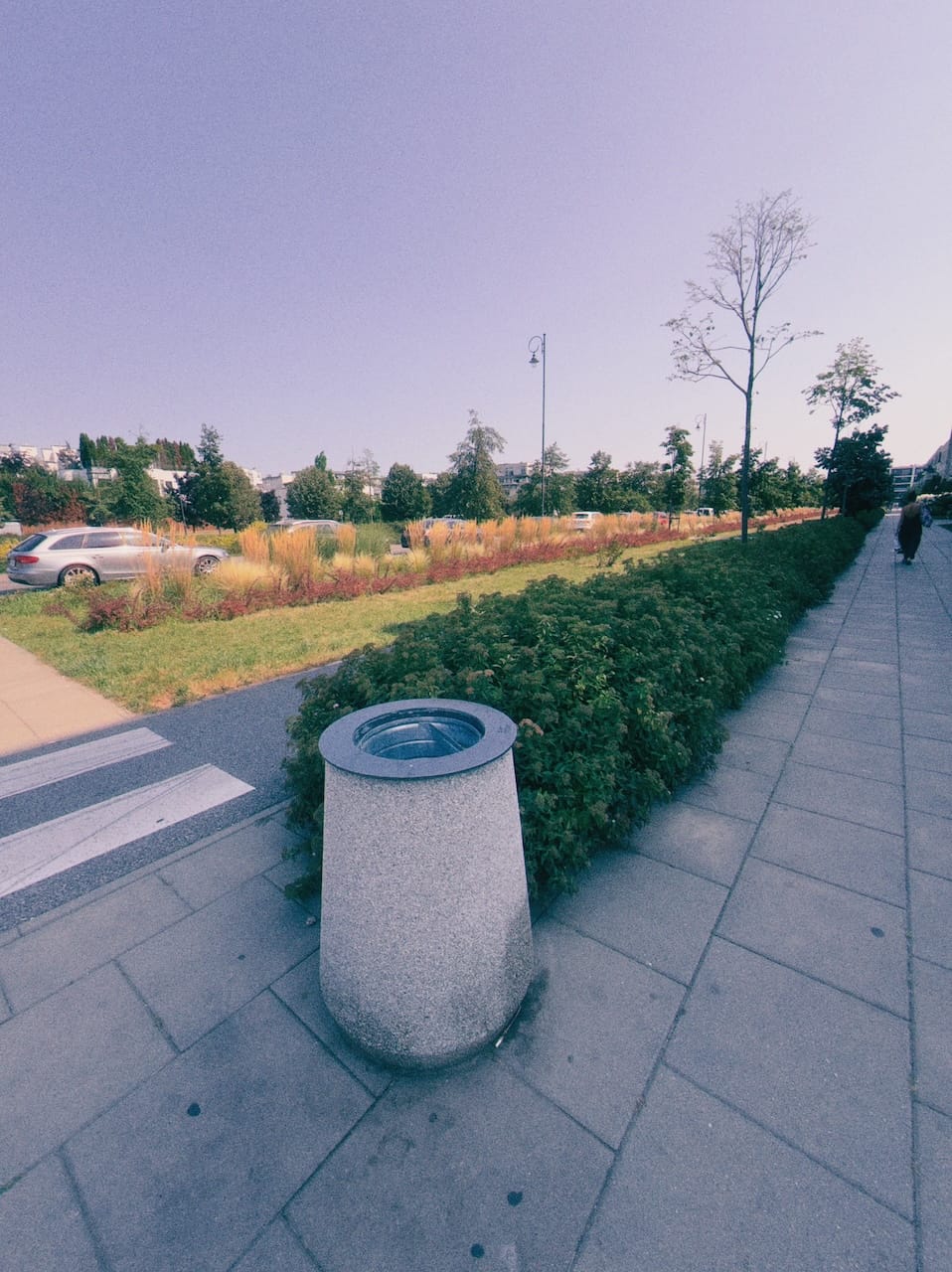
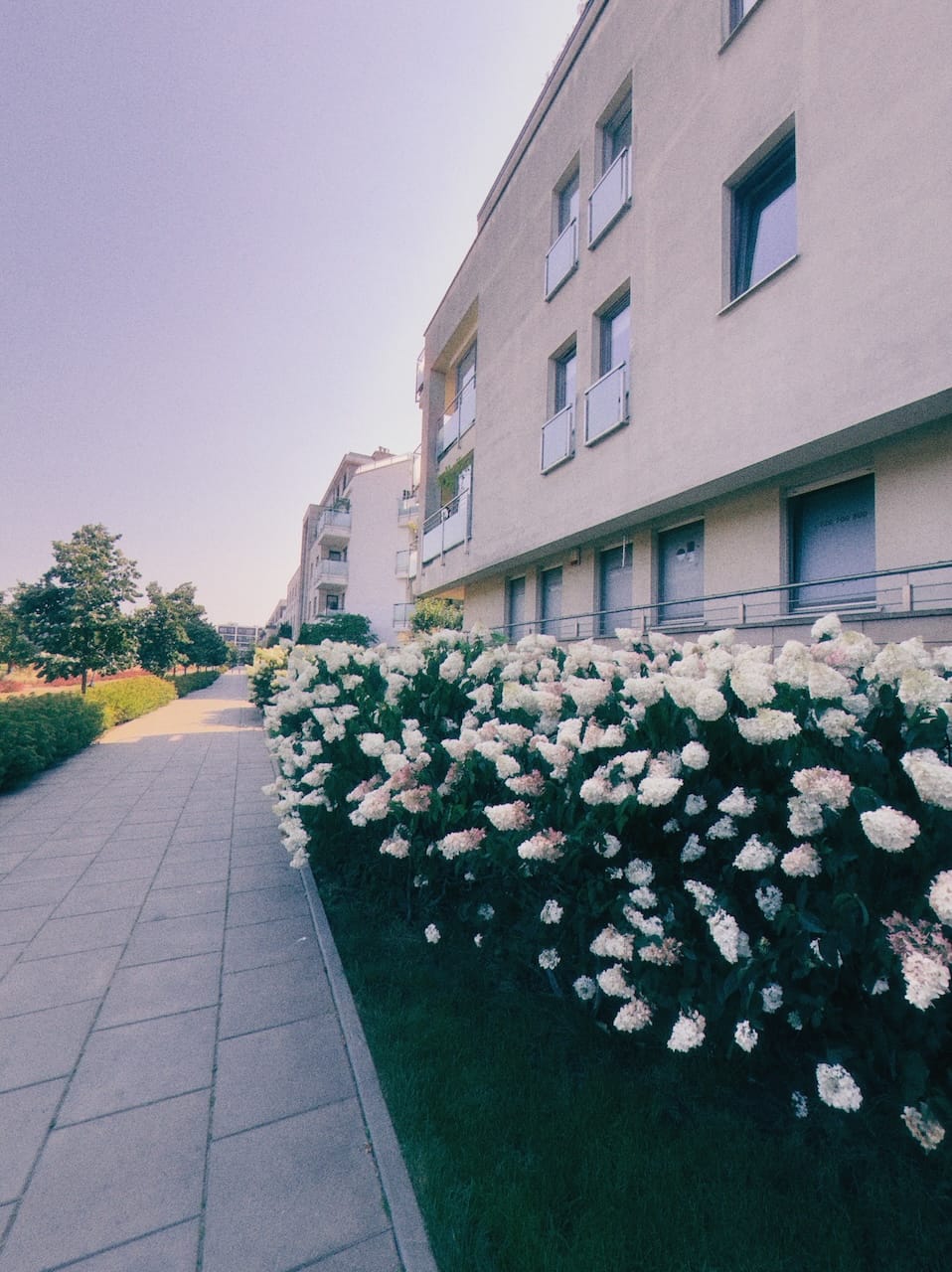
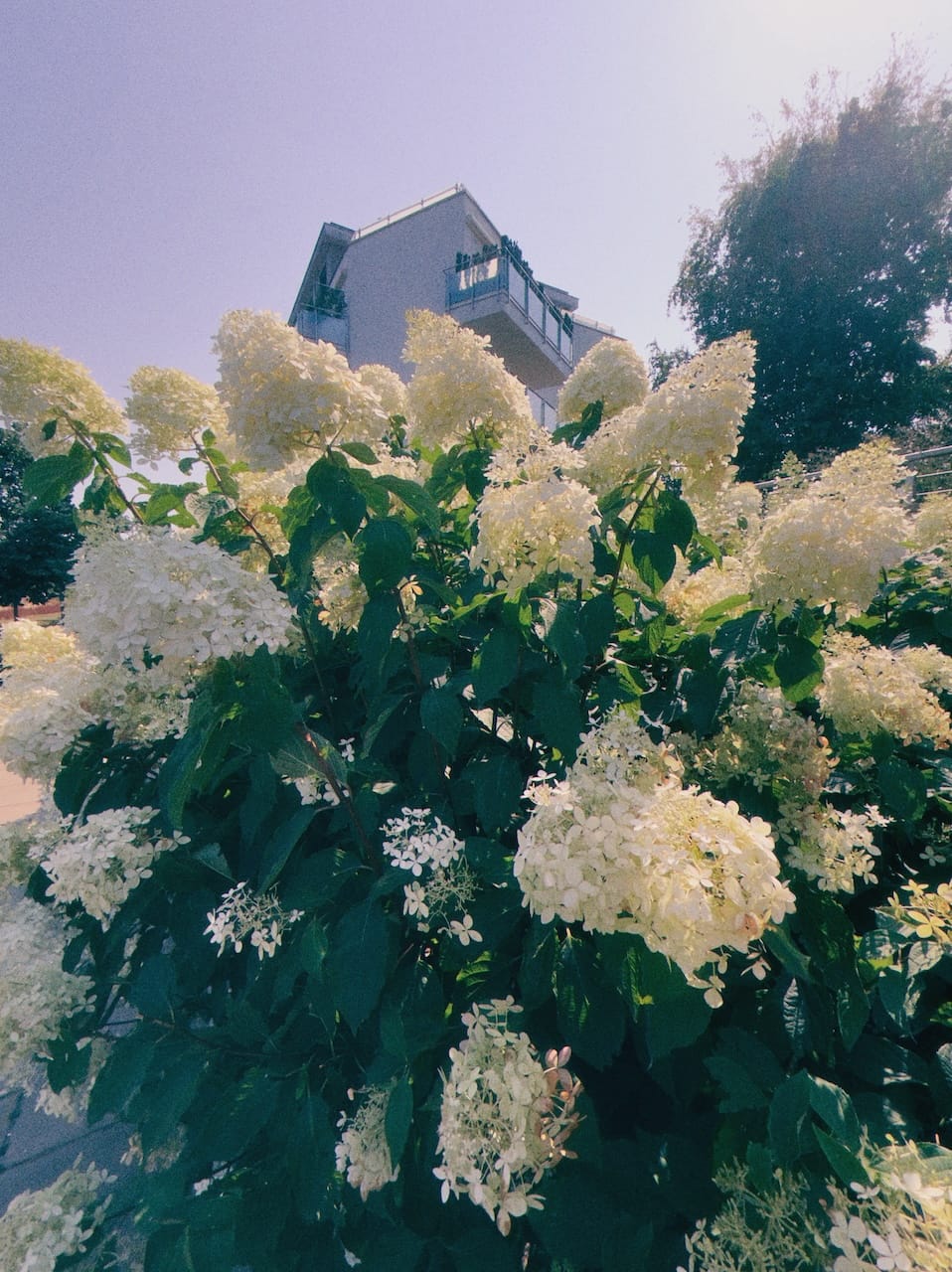
Wilanów
The Psychogeography of Presence
Yet something quite different happens when I abandon the project of Warsaw-as-text-to-be-read and allow myself to simply move through its spaces. Last Tuesday, I left my apartment in Służewiec with no particular destination, following the pull of unfamiliar street names, the promise of a park glimpsed between buildings. I walked for three hours, crossing and recrossing the stream I was loosely following, drifting through the quiet residential streets of Sadbya, circling back around the captivating shores of Jeziorko Czerniakowskie.
The Situationists call this psycho-geography - the study of how geographical environments affect emotions and behaviour. But for my postmodern buddies like Guy Debord and his collaborators, these dérives are also a form of resistance against the spectacular society that packages experience into consumable units. My wanderings through Warsaw feel similarly subversive, a refusal to transform the city into a learning objective or cultural acquisition.
In these moments, I'm not thinking in Polish or English but in something more immediate - the rhythm of footsteps on cobblestones, the way afternoon light creates shadows between buildings, the subtle gravitational pull of a café's cool on a warm day. This is embodied knowledge that can't be conjugated or graded, a form of intimacy that develops below the threshold of conscious language.
But what is the philosophical reality here? Roland Barthes distinguished between "readerly" and "writerly" texts - the first demanding passive consumption, the second inviting active participation in meaning-making. My classroom experience with Warsaw is decidedly readerly: the city becomes a collection of vocabulary words and grammatical structures to be decoded according to predetermined rules. But my walking practice transforms Warsaw into a writerly space where meaning emerges through encounter rather than interpretation.
The Violence of Representation
There's a particular violence in trying to translate lived experience into linguistic categories. When I attempt to describe the quality of light filtering through the glass ceiling of the Warsaw School of Economics, or the specific melancholy of Soviet-era housing blocks at dusk, Polish grammar becomes a reductive framework that flattens the complexity of sensory encounter into subject-verb-object arrangements.
This isn't to romanticise non-verbal experience or suggest that language is inherently limiting. No, it's to recognise that the institutional demand for linguistic demonstration - the pressure to prove understanding through verbal performance - can foreclose other forms of knowing and relating.
Guattari wrote about "becoming" as a process that exceeds representation, that happens in the spaces between categories rather than within them. My relationship with Warsaw seems to develop precisely in these liminal zones - not through the accumulation of cultural knowledge but through a kind of atmospheric attunement that resists articulation.
When I walk without agenda through the city's shifting neighborhoods, something happens that can't be measured or evaluated. I begin to sense the rhythms of different districts, to recognize the particular quality of each area's social geography. I develop preferences, aversions, curiosities that have nothing to do with linguistic competency and everything to do with the mysterious process of place-attachment.
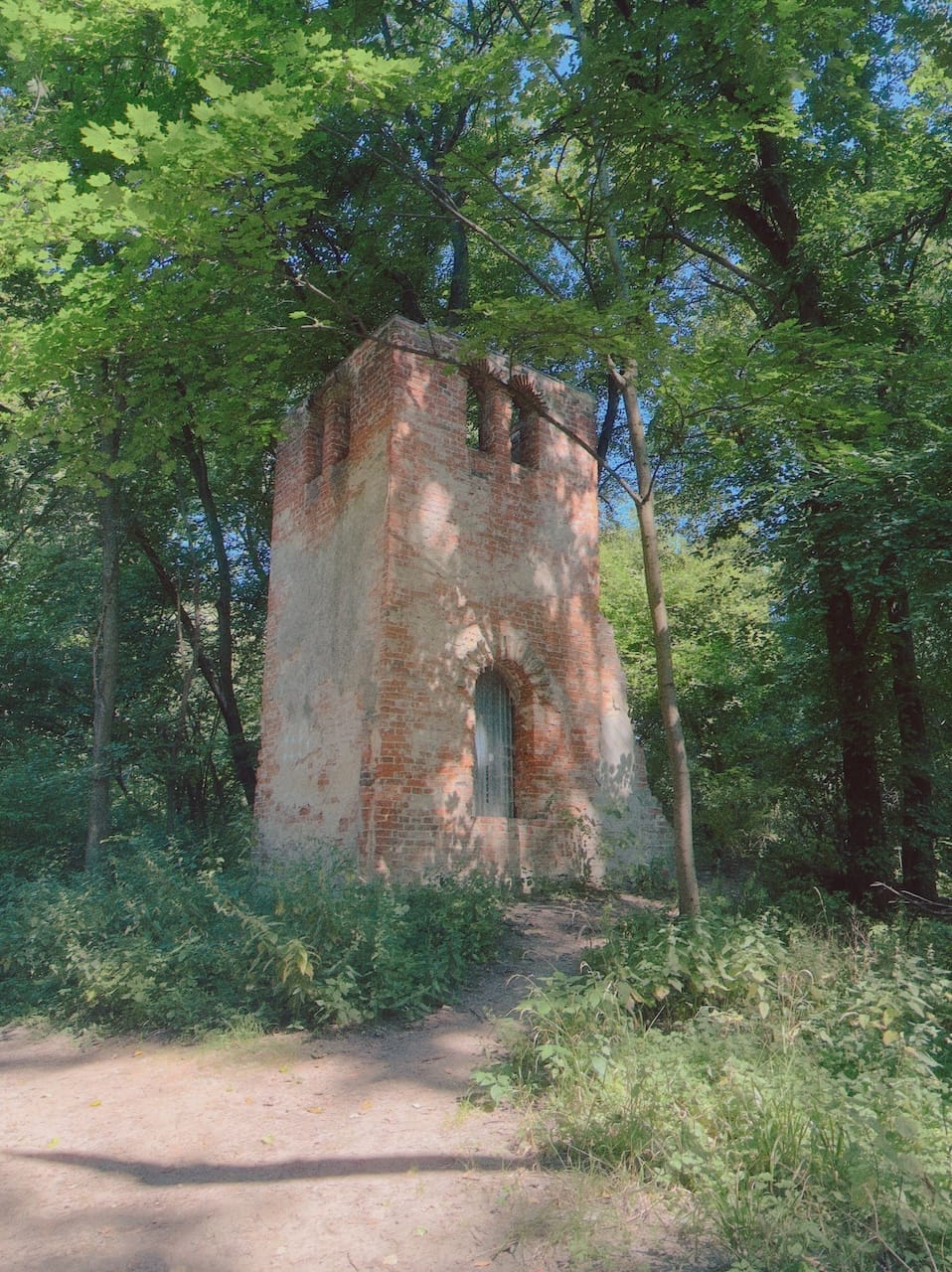
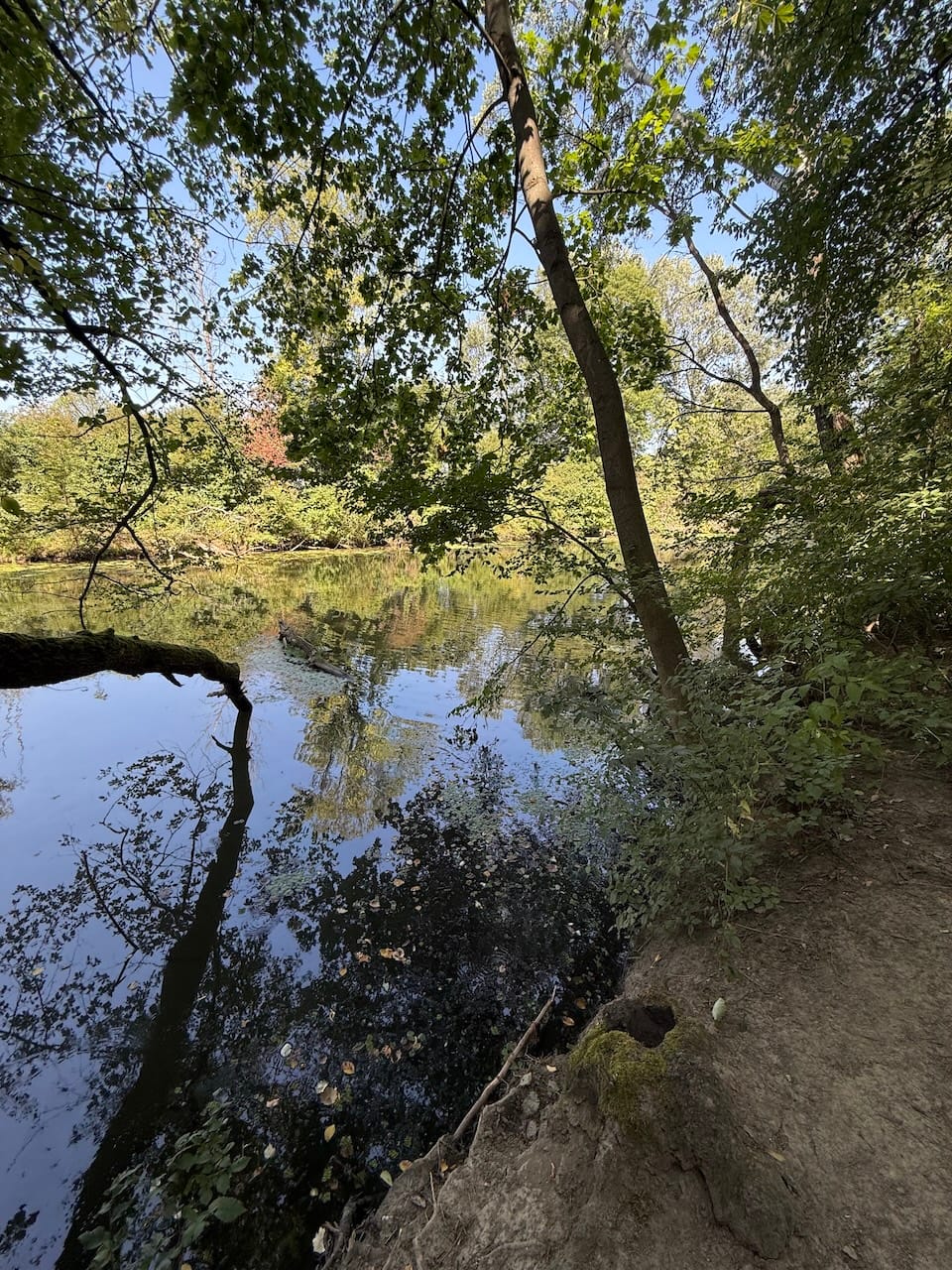
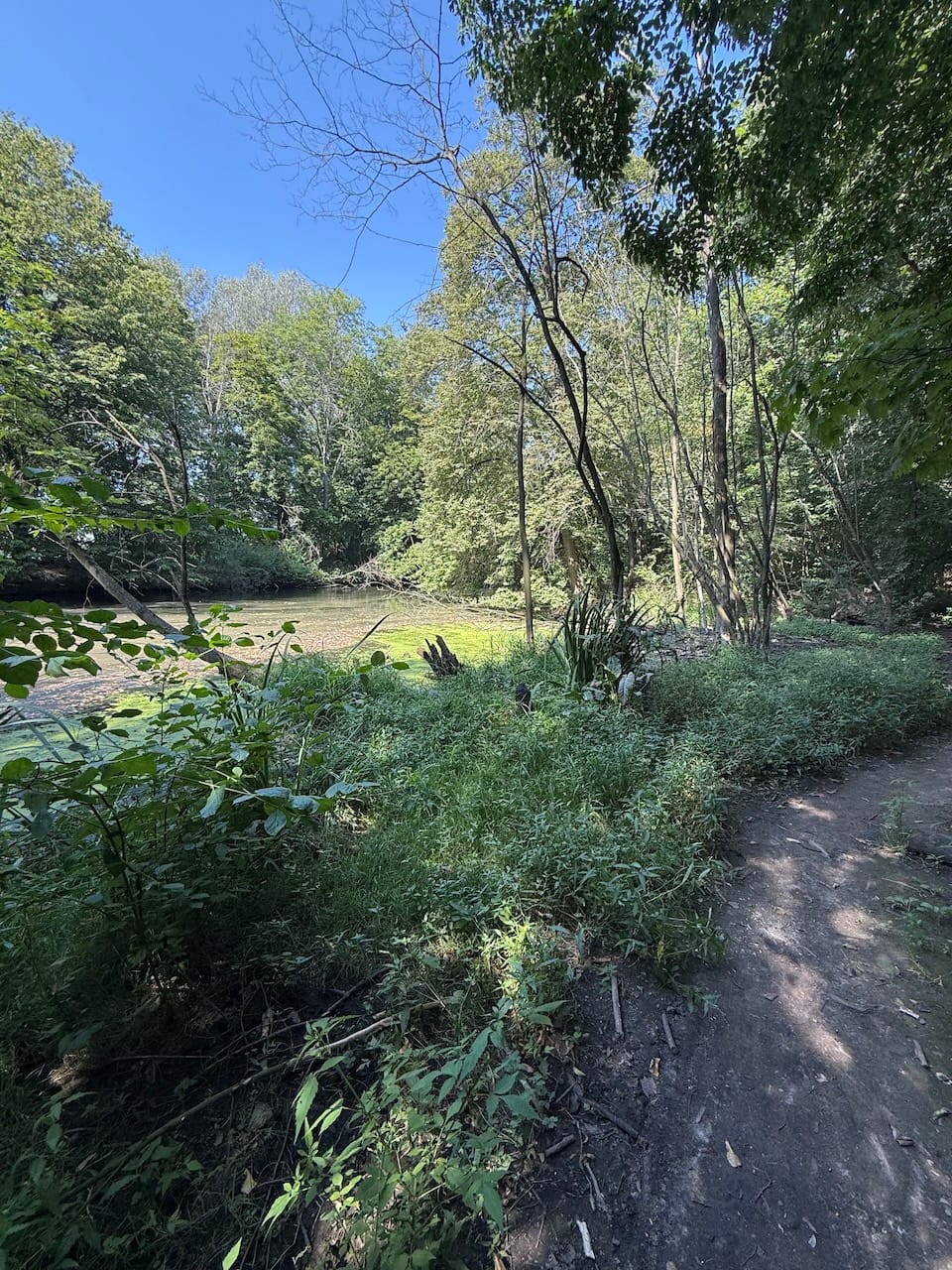
Wilanów Królewski
Learning to Unlearn
So, six weeks in, I'm beginning to suspect that my initial framework was fundamentally flawed. The problem isn't that I'm bad at learning Polish - though my consistency certainly suggest otherwise - but that I'm applying an acquisitive model to what might be a fundamentally different kind of process.
What if cultural integration isn't about accumulating skills but about developing sensitivity? What if belonging emerges not through mastery but through a willingness to be changed by encounter? What if the very attempt to "learn" a place prevents us from being taught by it?
This isn't an argument against language learning per se, but rather a questioning of the particular regime of evaluation and pressure I've imposed on myself. The anxiety I feel about my slow progress, the self-surveillance that turns every conversation into a test - these seem to actively interfere with the more organic process of "becoming-with-Warsaw" that happens during my walking practice.
Perhaps there's wisdom in indigenous concepts of knowledge that emphasise reciprocal relationship rather than one-directional acquisition. The land teaches those who are willing to listen, but this teaching requires a different kind of attention than classroom learning - patient, embodied, humble to the possibility that understanding might emerge in forms we don't expect or recognise.
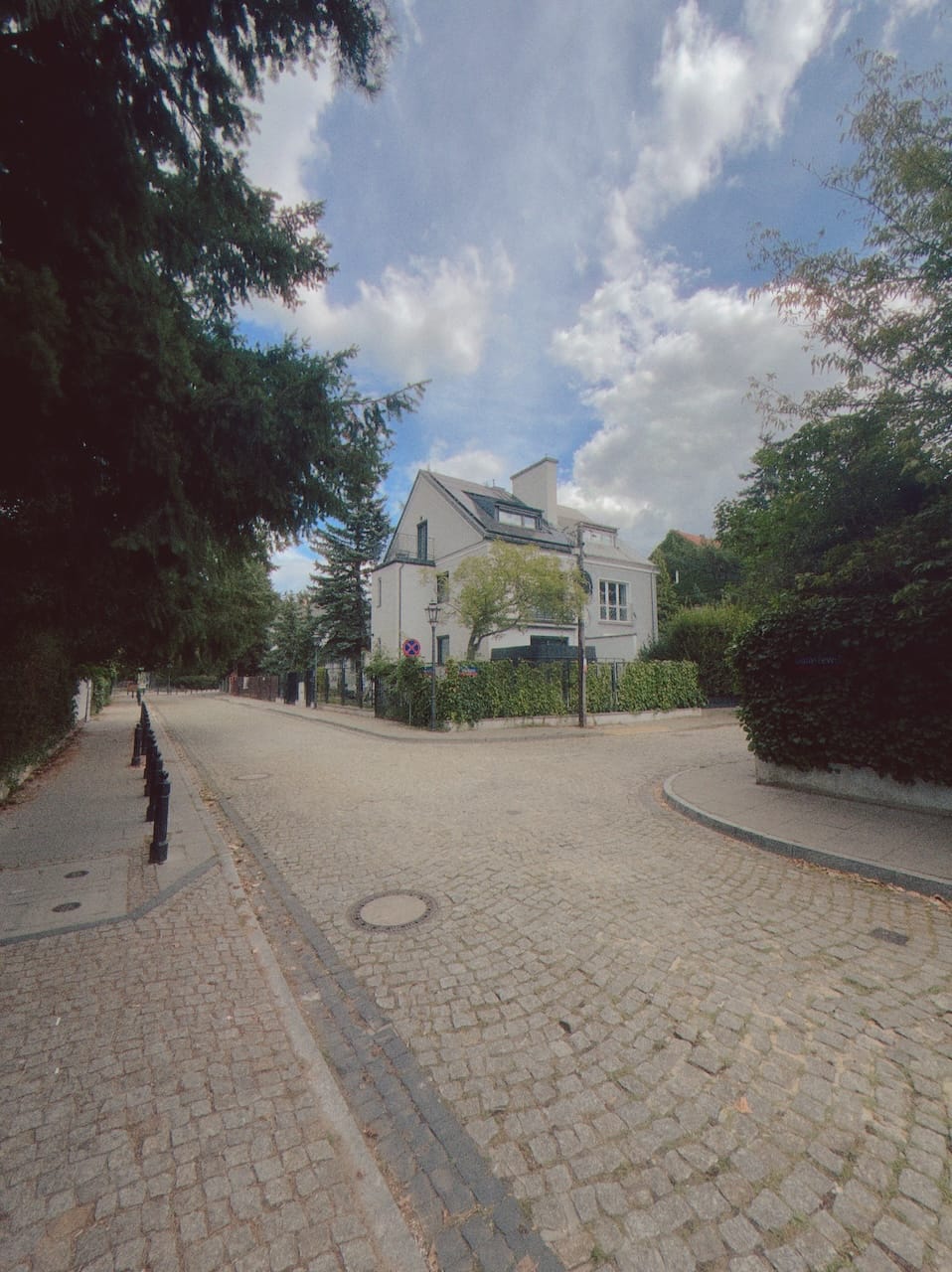
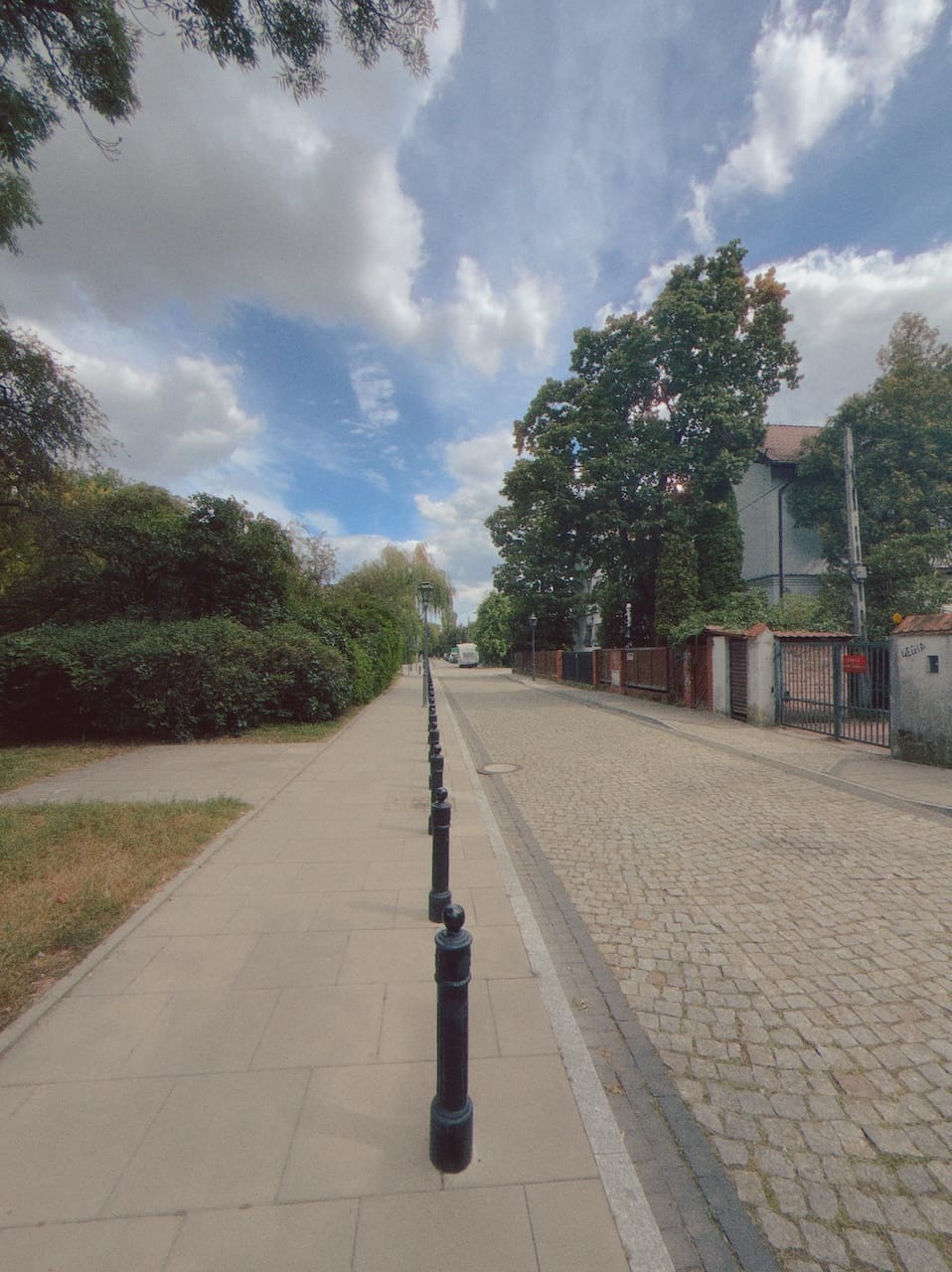
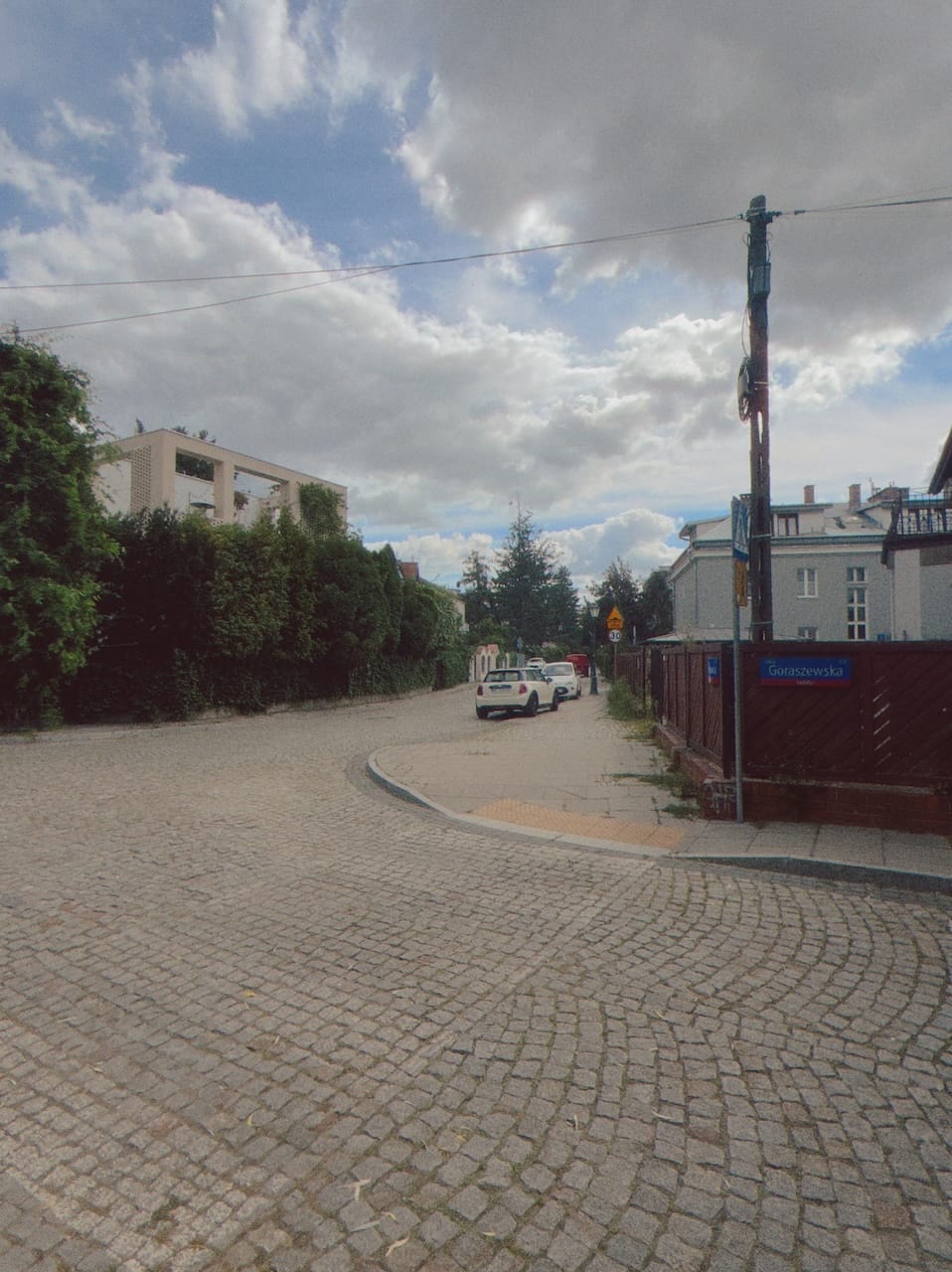
Sadbya
The Pedagogy of Wandering
My frequent meandering walks through Warsaw have become a different kind of education entirely. They teach me about the city's geological layers - Communist-era urban planning superimposed on ancient street patterns, contemporary glass towers rising from nineteenth-century foundations. They attune me to seasonal rhythms, to the subtle shifts in social atmosphere that occur between neighborhoods, to the complex interplay of public and private space that shapes urban life.
This knowledge feels more essential than verb conjugations, more intimate than vocabulary lists. It's the kind of understanding that develops through repeated exposure rather than systematic study, through sensory accumulation rather than conceptual analysis. It's knowledge that lives in the body rather than the mind, that expresses itself through confidence of movement rather than correctness of speech.
I guess I'm just learning to trust this embodied curriculum over the institutional one, to value the teaching that happens when I stop trying to learn.
The city reveals itself to those who approach it without agenda, who allow themselves to be guided by curiosity rather than driven by achievement.
This isn't to say I'm abandoning Polish lessons entirely - language remains a fascinating doorway into different ways of organising experience. But I'm trying to hold it more lightly, to see it as one possible relationship with the city rather than the prerequisite for all others.
In the end, perhaps the most radical thing I can do is trust that Warsaw and I are already in conversation, that belonging is already happening in ways too subtle and various for any classroom to contain.
The grand narrative of cultural integration promised me mastery, but the city offers something far more interesting: the ongoing mystery of mutual becoming, measured not in test scores but in the quality of attention I bring to each wandering step.

